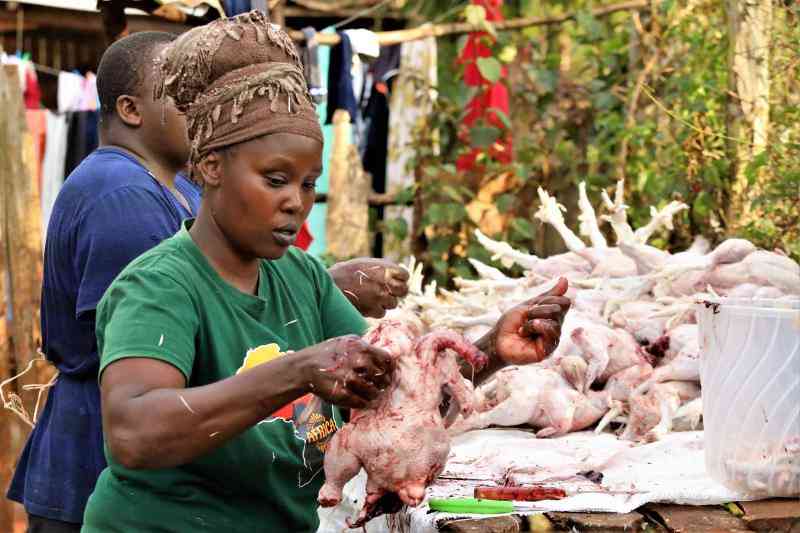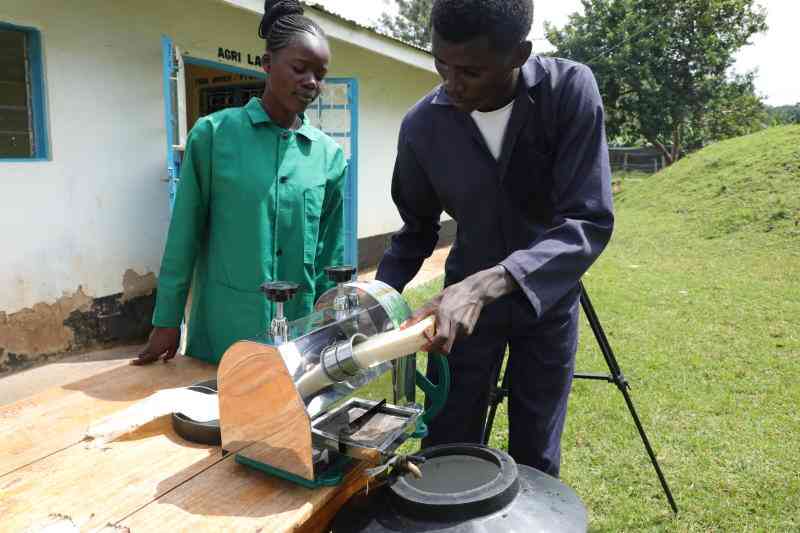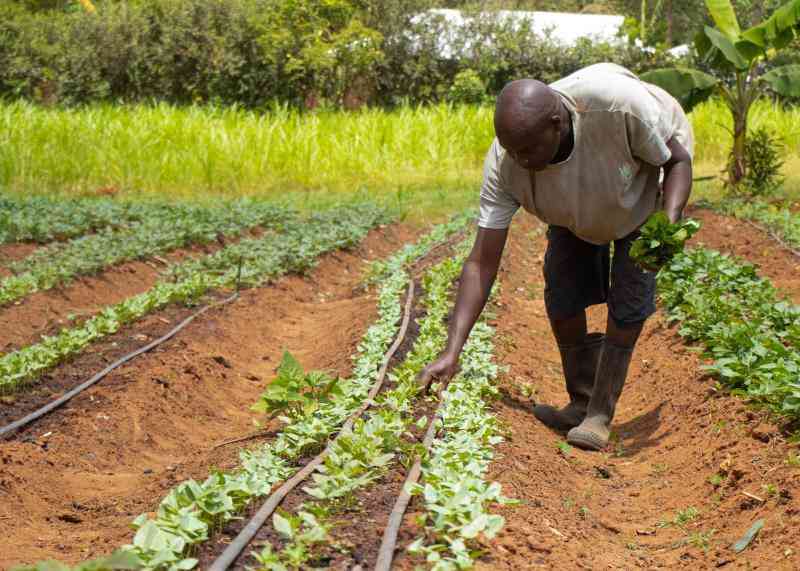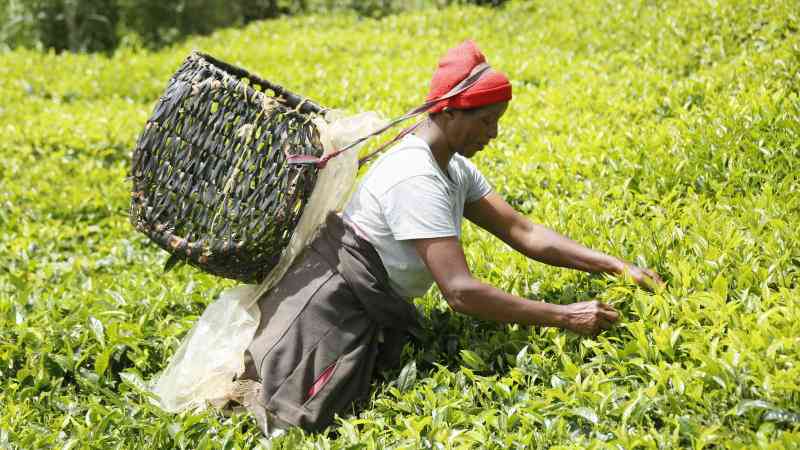Experts issue warning on antibiotics misuse
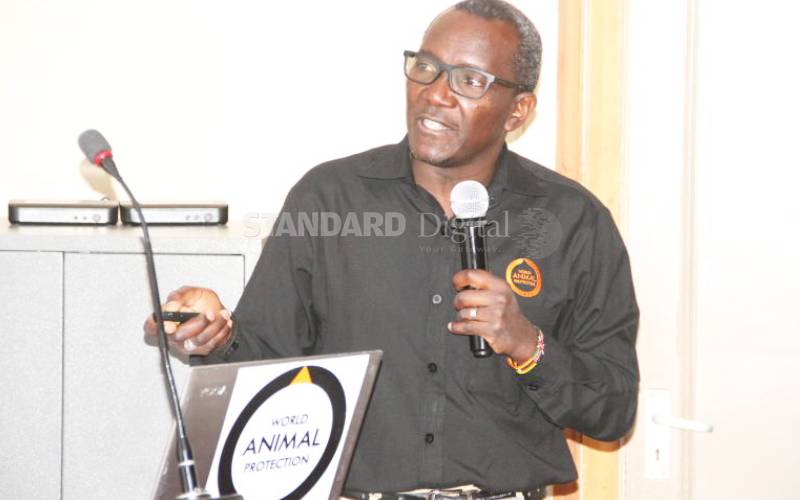
Despite numerous warnings and campaigns on deadly effects of misusing antibiotics, it is unfortunate that farmers are still doing it.
The Kenya Veterinary Board has on various occasions warned against this trend, but on the ground it appears that farmers are still flouting the rules on safe antibiotic use.
Dr Victor Yamo (pictured), a manager, Animal in farming at World Animal Protection (WAP) said though antibiotics play significant role in treating livestock diseases, farmers are misusing them. This in turn makes the drugs start losing effectiveness as bacteria are developing antibiotic resistance, making it hard to treat animals when they get sick.
Good husbandry
Speaking during a sensitisation worskshop on antimicrobial resistance in Nairobi this week, Dr Yamo said another worrying trend is antibiotics are increasingly being added to animals’ feed to accelerate growth and prevent them from getting sick in crowded feedlots.
“If we feed our livestock with antibiotics, we end up with a product that has antibiotics residue that promotes drug resistance and cannot be treated,” warns Dr Yamo. He observes that farmers have substituted animal welfare activities and good husbandry with the use of antibiotics thinking it is a shortcut to high yields with minimal costs.
“Dairy cows and other livestock are housed in confined, overcrowded and barren conditions with fast growth genetics, leading to high stress that compromises immunity and health. This is encouraging the development and spread of disease. This conditions create demand for antibiotics, which farmers easily turn to,” he said. The doctor says many a times farmers engage in such practices to make money.
In other instances, the expert reveals that farmers are adding hydrogen peroxide or antibiotics to milk to make them last longer. The milk containing antibiotics ends up in the food chain and are consumed leading to treatment resistance.
There is research to back these findings. A study done in Kenya by the Global Antibiotic Resistance Partnership (GARP) reported that up to 70 per cent of imported antibiotics are given to chickens, pigs and cows. It further showed that some farmers give antibiotics to their livestock to prevent them from getting sick. Dr Azegele Allan, deputy director Veterinary Services at the Directorate of Veterinary Services says antibiotics are not used to prevent diseases from livestock.
“Antibiotics are only used to treat livestock and treatment should only be instituted after clinical examination of the affected animals by a competent and licensed veterinary practitioner,” advised Dr Azegele.
During treatment, Dr Azegele says farmers should ensure that the animal gets the full recommended dose. For lactating cows, withdrawal period must be adhered to. The withdrawal period is when milk from the cow on antibiotic treatment is not consumed.
Withdrawal period
But for a number of farmers, this is not a priority.
“Unfortunately, some farmers do not observe withdrawal period and that milk ends up in the market/food chain and consumed by you and me,” says the Vet.
Dr Yamo says other farmers engage in self-medication of their animals on the advice from other farmers, or by calling or visiting agrovet shops without the animal being physically examined to diagnose the actual problem.
“Only use antibiotics when prescribed by a veterinary expert,” he advises.
Experts also accuse farmers of not following the prescription and the use of antibiotics are recommended by veterinarians.
He warned that farmers also underdose or overdose their dairy cows leading to resistant bacteria called superbugs which affects both animal and human beings.
“When animals or people gets sick from superbug they cannot be treated. Reports show, by 2050, the world would be losing 10 million people to superbugs,” he warns.
Dr Azegele says on the Kenyan market, there are many funny formulations and if you look at the sachet you will see a combination of minerals, supplements and antibiotic.
“And, farmers are always rushing for such formulations so as to speed up their livestock growth. We must counter production of formulations with antibiotics,” he said. Going forward, the experts agreed that it is possible for farmers to do away with antibiotics completely.
“Farmers just need to practise best practices like good housing conditions and proper health care. They should also embrace preventive strategies such as vaccination,” Dr Yamo explains.
Reports show 75 per cent of all the antibiotics used in the world are used in farming.
Want to get latest farming tips and videos?
Join Us
Share this article on social
 The Standard Group Plc is a multi-media organization
with investments in media platforms spanning newspaper print operations,
television, radio broadcasting, digital and online services. The Standard Group
is recognized as a leading multi-media house in Kenya with a key influence in
matters of national and international interest.
The Standard Group Plc is a multi-media organization
with investments in media platforms spanning newspaper print operations,
television, radio broadcasting, digital and online services. The Standard Group
is recognized as a leading multi-media house in Kenya with a key influence in
matters of national and international interest.
 The Standard Group Plc is a multi-media organization
with investments in media platforms spanning newspaper print operations,
television, radio broadcasting, digital and online services. The Standard Group
is recognized as a leading multi-media house in Kenya with a key influence in
matters of national and international interest.
The Standard Group Plc is a multi-media organization
with investments in media platforms spanning newspaper print operations,
television, radio broadcasting, digital and online services. The Standard Group
is recognized as a leading multi-media house in Kenya with a key influence in
matters of national and international interest.


